2024年5月30日下午,由6165cc金沙总站和社会科学研究院联合主办的“全球共通:智能时代国际传播”高端对话在6165cc金沙总站融媒体演播中心顺利举行。本次汇聚来自清华大学、天津大学、中国传媒大学、上海外国语大学等八所国内知名高校的学者和人民日报社、新华社、中国新闻社等主流媒体的业界专家,紧紧围绕全面落实习近平总书记关于加强和改进国际传播工作的重要讲话精神,为提升我国国际传播能力、形成同我国综合国力和国际地位相匹配的国际话语权、构建人类命运共同体作出积极探讨。我校有关部门负责同志参与会议。
我校党委副书记、纪委书记黄翔峰致辞。他首先代表学校对参与本次高端对话的国际传播相关领域的专家学者表示欢迎。他表示,2021年5月31日,习近平总书记在中共中央政治局第三十次集体学习时强调,讲好中国故事,传播好中国声音,展示真实、立体、全面的中国,是加强我国国际传播能力建设的重要任务。近年来,我校在打造具有国际影响力的国内一流国际传播研究高地的过程中取得了重要成果。当前和今后一个时期,学校要进一步努力加强国际传播能力建设和人才培养,为推动构建人类命运共同体做出积极贡献。
Zhou Xisheng, former vice president of Xinhua News Agency and the first president and editor-in-chief of Xinhuanet, delivered a speech. He said that the construction of international spread should enhance political understanding, sense of mission and responsibility, sense of history and sense of arduous tasks, give full play to the comprehensive advantages and disciplinary advantages of first-class universities such as Zhejiang University, and strive to be the main force of international spread. It is necessary to strengthen discipline construction, pay close attention to technological progress, and at the same time, we should not talk about it, but pay more attention to practical results. Some suggestions are put forward to promote the construction of international spread discipline in the School of Media and International Culture of Zhejiang University from six aspects: improving the writing and expressing abilities in foreign languages, strengthening the regional and country studies, paying attention to the cultivation of international spread talents, and focusing on the international spread in urban and rural areas of the Yangtze River Delta.
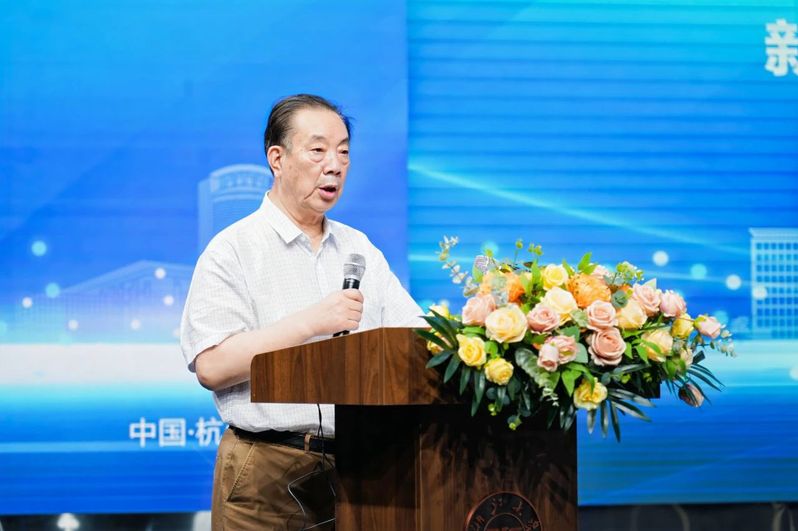
Fang Xingdong, Executive Vice Dean of School of Media and International Culture, Zhejiang University, delivered a speech. He said that at present, the international spread has become the academia and the industry one of the biggest hot spots. School of Media and International Culture, Zhejiang University docking major national strategies, The establishment of the National Soft Power Critical Infrastructure Engineering Laboratory aims to echo the characteristics of the digital era of global integration, respond to the new challenges of international spread, give full play to the university's characteristics and advantages, and initiate research and exploration in theory, model, practice, technology, talents, etc. The construction of soft infrastructure aims to achieve a breakthrough and leap in China's soft power from the perspective of infrastructure. In the future, the School will further promote the cooperation with relevant units in international spread and national soft power construction, and strive to undertake the basic mission of international spread, to achieve innovation in the field of international spread, to really help the development of national strategy.
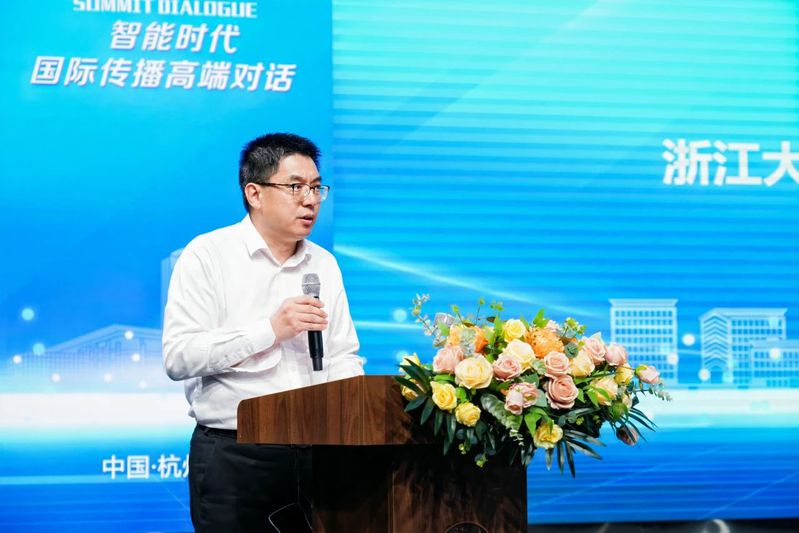
Huang Xiangfeng, Deputy Secretary of the Party Committee and Secretary of the Discipline Inspection Commission of Zhejiang University, Zhou Xisheng, former Vice President of Xinhua News Agency and the first President and Editor-in-Chief of Xinhuanet, Fu Fangzheng, Executive Deputy Director of the Propaganda Department of the Party Committee of Zhejiang University; Li Min, Director of the Office of International Cooperation and Exchange of Zhejiang University; Yuan Qing, Executive Vice Dean of the Beijing Research Institute of Zhejiang University; Gong Binlei, Vice Dean of the Research Institute of Social Sciences of Zhejiang University; Fang Xingdong, Executive Deputy Dean of School of Media and International Culture, Zhejiang University, Wang Qingwen, Party Secretary, and Wu Fei, Director of International spread Research Center, Zhejiang University, witnessed the unveiling of National Soft Power Critical Infrastructure (Soft Base) Engineering Laboratory.
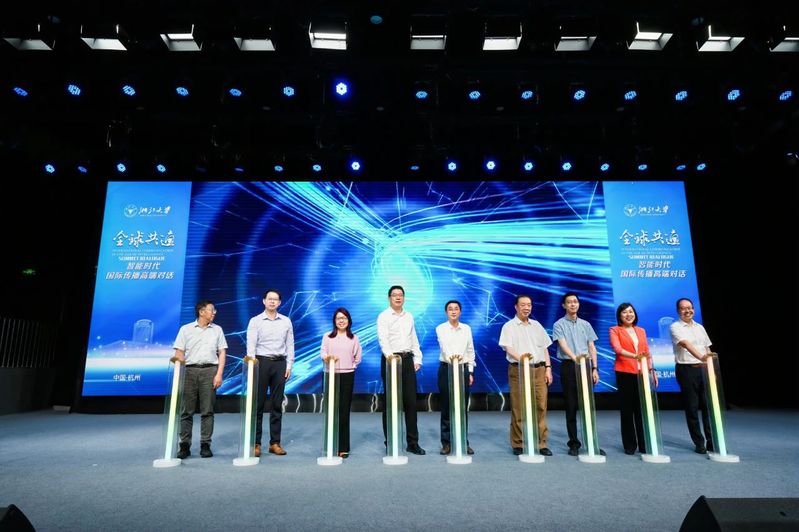
The signing ceremony between School of Media and International Culture of Zhejiang University and Communication University of China Press was also held at the meeting. Zhang Yuqiang, President of Communication University of China Press, and Fang Xingdong, Executive Vice Dean of School of Media and International Culture, Zhejiang University signed the agreement. In the next step, the two sides will jointly promote the production, publication and promotion of the international spread series of financial media products, and further strengthen cooperation in the design of course materials, various professional workshops and seminars.
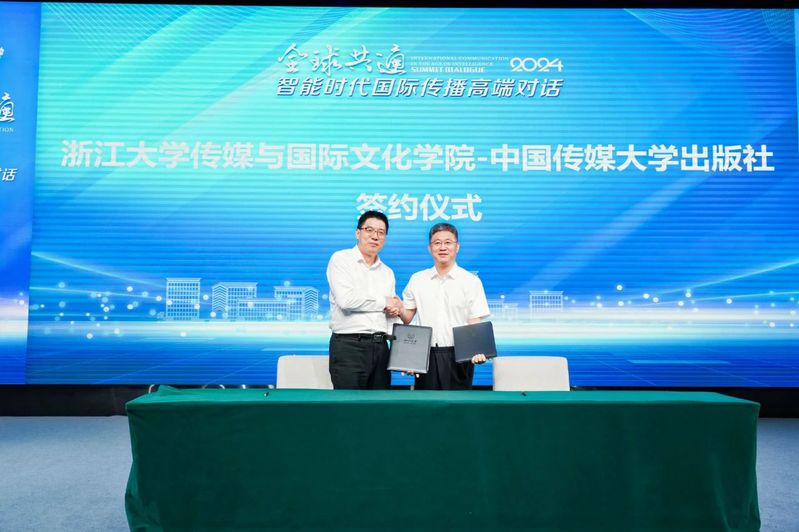
Wu Fei, Director of the Center for International Communication Studies of Zhejiang University, Zhang Yuqiang, President of the Communication University of China Press, and Wu Ying, Director of the Center for International Communication Studies of Shanghai International Studies University delivered speeches in turn.
Professor Wu Fei cited Descartes' rationalism and Zhao Tingyang's there are still two basic consciousnesses in anthropology, and comprehensively analyzed the current challenges in telling the China story well. In the lecture, Professor Wu Fei also announced the ten major plans for the construction of international spread discipline in Zhejiang University, including the soft base engineering laboratory, the publishing of a series of books and textbooks, To select the annual international communication cases, to promote the construction of basic theories, to cultivate international communication talents, to establish an empirical data collection and release platform, to establish a national strategic communication academic journal, to establish an international communication innovation alliance and to establish a China international communication knowledge center.
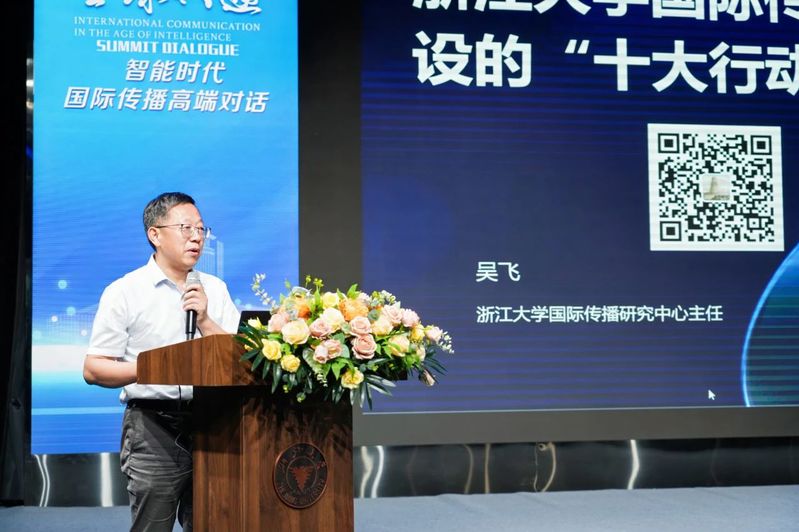
Professor Zhang Yuqiang elaborated on the current international spread of China's theoretical and practical issues, he reviewed the existing international spread of the advantages and disadvantages, Several urgent problems covering the basic concepts and basic theoretical system of international communication, international communication practice, international spread of new media, national network security and personnel training are put forward, and important topics for future international communication research are proposed.
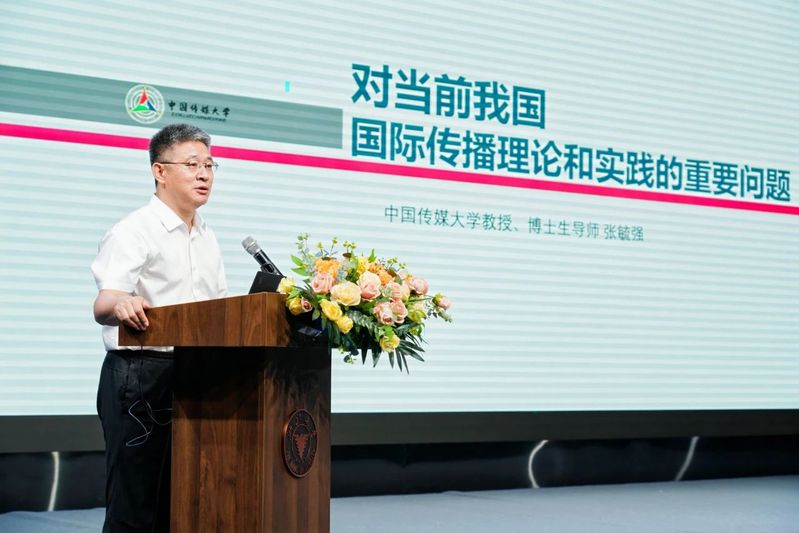
Professor Wu Ying delivered a speech entitled Study on international spread of modernization of Chinese style facing Z generation. Through the concept traceability, she elaborated on the common characteristics of the global Z generation, the global picture and social mentality of the Z generation, and the portraits of Generation Z in different countries in the world, and proposed to evaluate the communication and influence of Chinese modernization in different regions and countries by category.
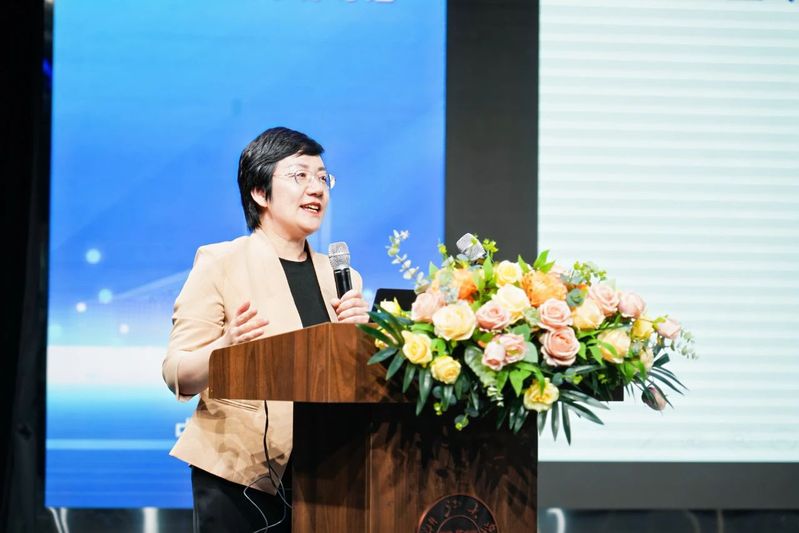
The conference also held two roundtable dialogues with the themes of Intelligent Communication and Globalization and Academic Frontiers of Global Digital Communication.
The dialogue on Intelligent Communication and Globalization was hosted by Hong Yu, Vice Dean of School of Media and International Culture, Zhejiang University. Yan Yan, Deputy Director of Zhejiang Branch of China News Service, Yang Rui, Former Famous CCTV Host and Part-time Expert of School of Media and International Culture, Zhejiang University, Zhang Xuan, senior researcher of the National Key Laboratory of Communication Content Cognition of People's Daily, Zhang Yuan, head of Zhejiang affairs of China.com and head of Inspur News of China.com participated in the discussion.
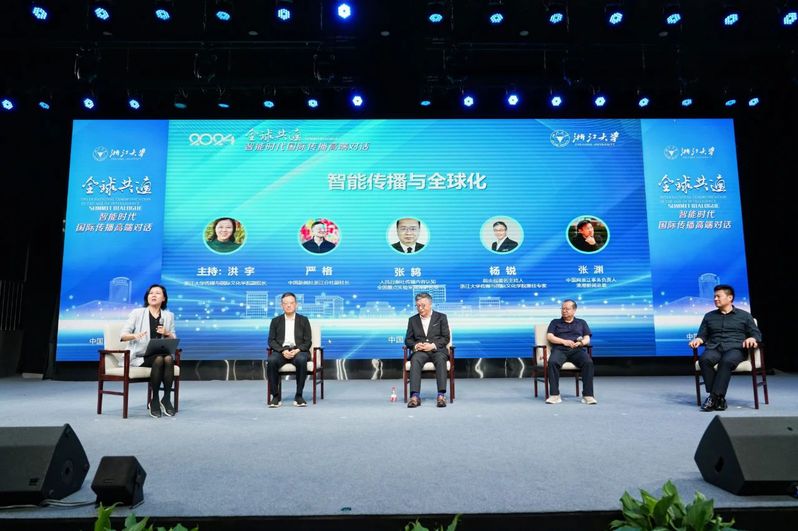
Based on his rich practical experience in the field of international spread, Yang Rui shared his thoughts on how to look at the situation of international public opinion and the situation of international public opinion struggle. He believes that in the traditional media encountered unprecedented challenges from new media communication environment, media practitioners should be in international political relations and international spread practice to keep a sober mind. In addition, he also shared the ABC principle, which is to use the most precise (Accuracy), (Brevity), (Clarity) language for international spread.
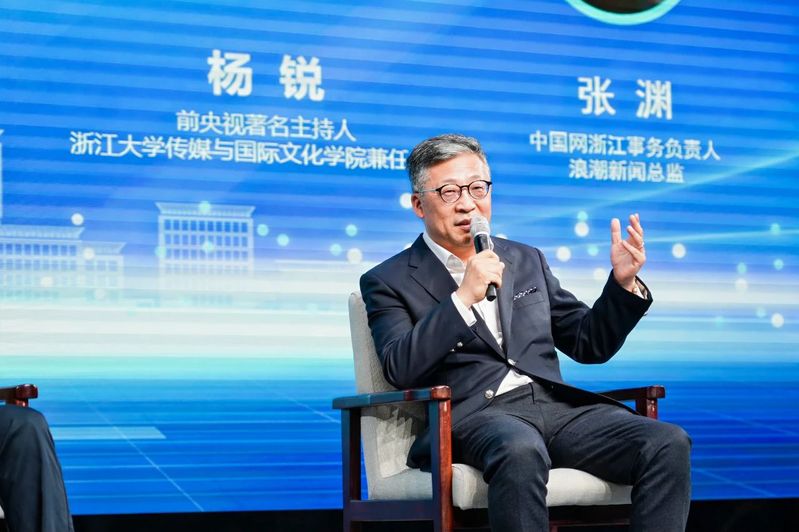
Strictly speaking, the existing international spread system needs to be innovated. He pointed out that international spread should be participated in by all, rather than a one-man show by the media. He took the excellent case of Zhejiang digital culture going to sea as an example to show the strong communication power of online games, online literature and micro drama in the international market. He stressed that collaboration between industry and the business community was key to the innovative discourse system and called on all parties to work together to achieve more effective international spread.
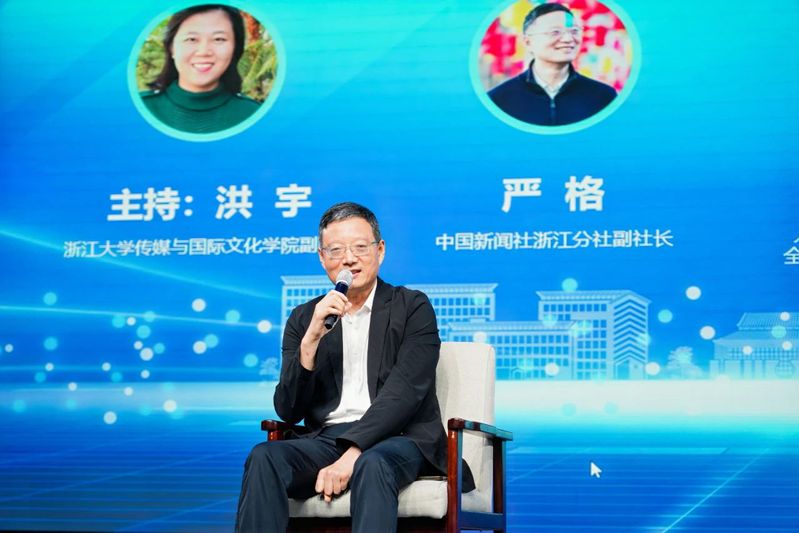
In response to the discussion on how to use technology to optimize international spread, Thrush pointed out that technology is the key factor to improve international spread. The current international spread reflects the trend of digitalization, networking and intelligence. From a technical point of view, we should pay attention to four aspects: the shortage of Chinese data, the conflict between algorithm value and mainstream values, the security risks of artificial intelligence and the difficulties of intelligent communication application. Addressing these issues is crucial to increasing the effectiveness of international spread.
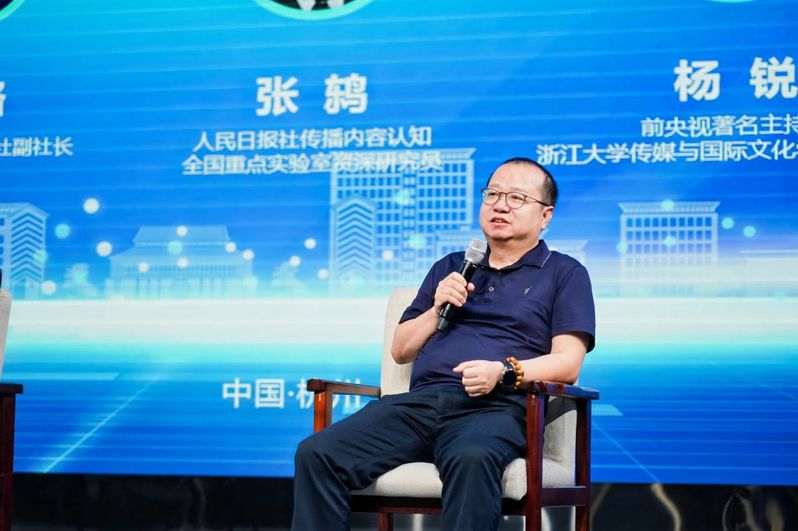
Based on the experience of Christian, a French student in Zhejiang, Zhang Yuan proposed that although external publicity and international spread are closely related, they should be differentiated. He believes that foreign publicity is a politically driven initiative, while international spread is a deeper cultural exchanges. China's international spread to avoid low-level red, senior black, targeted to carry out local publicity, enhance local communication in the international arena.
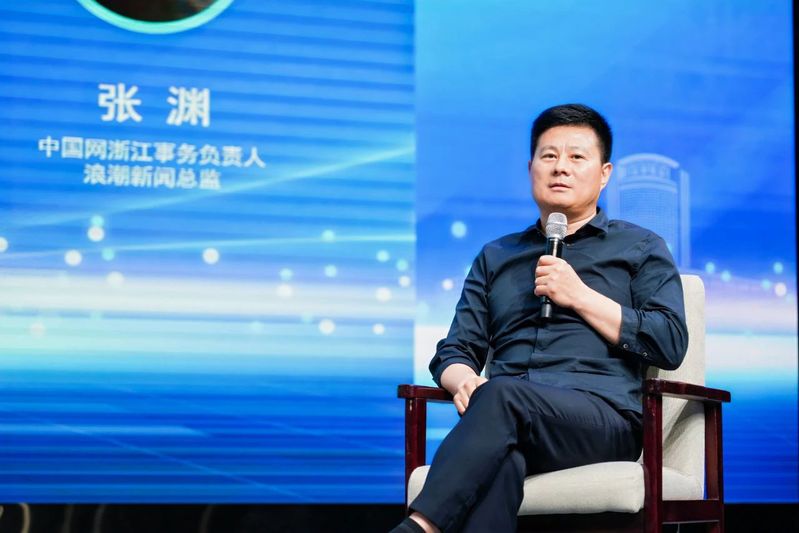
The second session of Academic Frontiers of Global Digital Communication was hosted by Zhao Yu, Vice Dean of School of Media and International Culture, Zhejiang University. Lu Xiaohua, Dean of School of New Media and Communication, Tianjin University; Chen Long, Dean of School of Communication, Soochow University; Zhuang Xi, Executive Dean of School of Journalism and Communication, Nanjing Normal University; and Li Xin, Dean of School of Journalism and Communication, Zhejiang University of Media and Communication participated in the discussion.
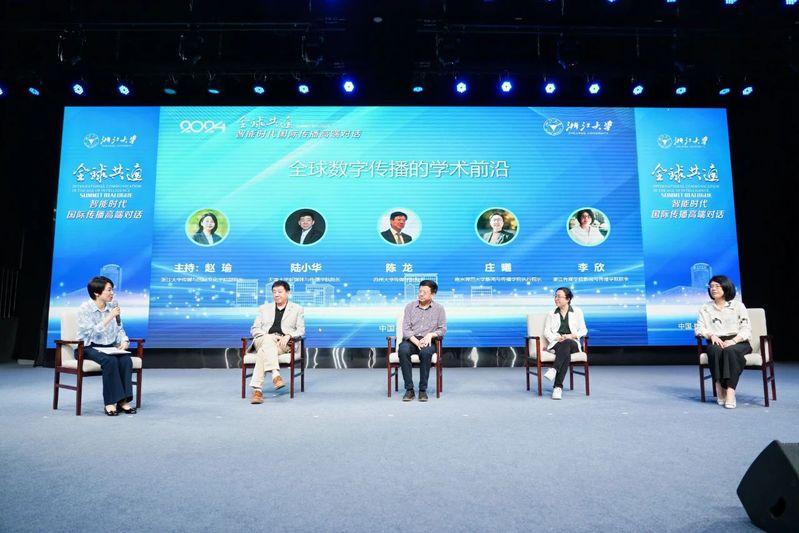
In response to the impact of artificial intelligence technology on journalism and communication, Lu Xiaohua believes that the impact of new technological revolutions such as artificial intelligence is very rapid. Artificial intelligence will certainly change the relationship between communication and people, so academia and industry need to work together to guide the majority of users of artificial intelligence technology in simple language. Chen Long believes that artificial intelligence has a subversive impact on news communication practice and academic research. Technology can not be regarded as a myth, to solve the problems brought by technology, we should start from the perspective of interpersonal communication, and focus on people's problems rather than only from the technical point of view to find the reasons. Zhuang Xi pointed out that at present, intelligent communication is still in the development stage, and the form of media integration is far from being determined. First, it needs to cultivate talents based on value; The second is to respond to technology and explore solutions in multiple application scenarios. Li Xin pointed out that in the face of artificial intelligence, we must consider how to cultivate applied talents. The development of artificial intelligence from decision-making to generative, its path, maturity and solutions have changed greatly. At the same time, there is also the inevitable integration of artificial intelligence and media, which must be reshaped with ideas, maintaining technical rationality and subjectivity to overcome technological fear.
When discussing how news media can build a new type of mainstream media in the evolution of technology, Lu Xiaohua pointed out that the industry lacks teams and individuals with overall control of technology trends and business needs. He stressed that the media should choose the right technology entry point, and combine usability thinking, instrumental mastery and service convenience to harness technology.
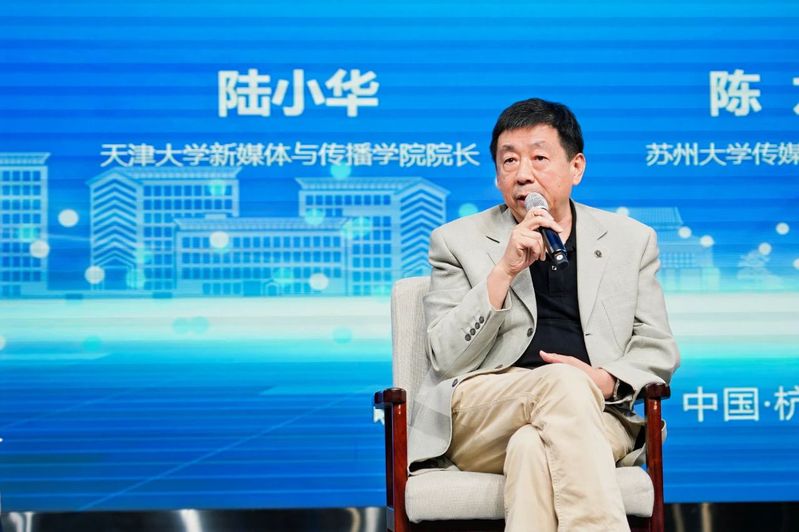
In view of the changes in public opinion ecology and public opinion governance in the context of intelligent media, Chen Long believes that artificial intelligence is only a blessing of technological development. The decentralization of traditional media has ushered in a new user-centric stage, which requires more research on the psychology, emotions and human nature of users. In this case, journalism writing, editing and reviewing should be developed with the aid of artificial intelligence, while jumping off the traditional public opinion research, combining public opinion with open source intelligence and adopting a dynamic research approach.
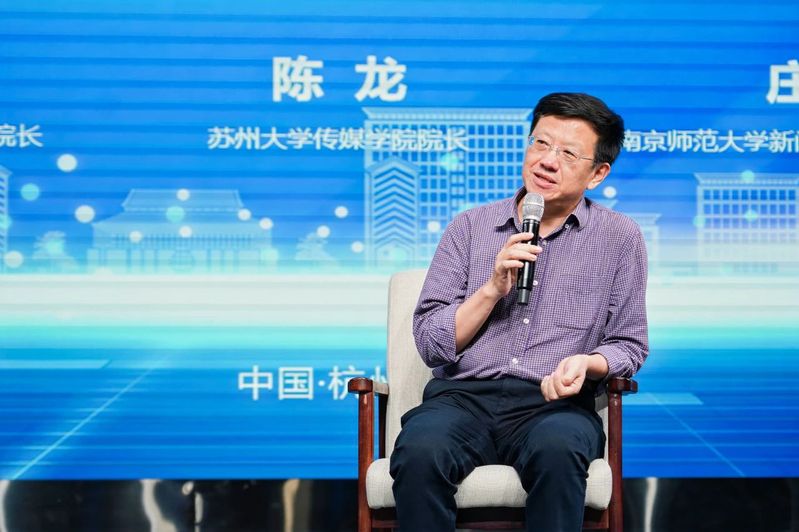
When discussing the role of artificial intelligence in international spread, Zhuang Xi mentioned the changes brought by intelligent communication, pointing out the rapid changes of overseas media, and the new possibilities of intelligent communication in terms of social communication and user connection. But she also pointed out that there may be language and cultural biases in the application of large models to content generation.
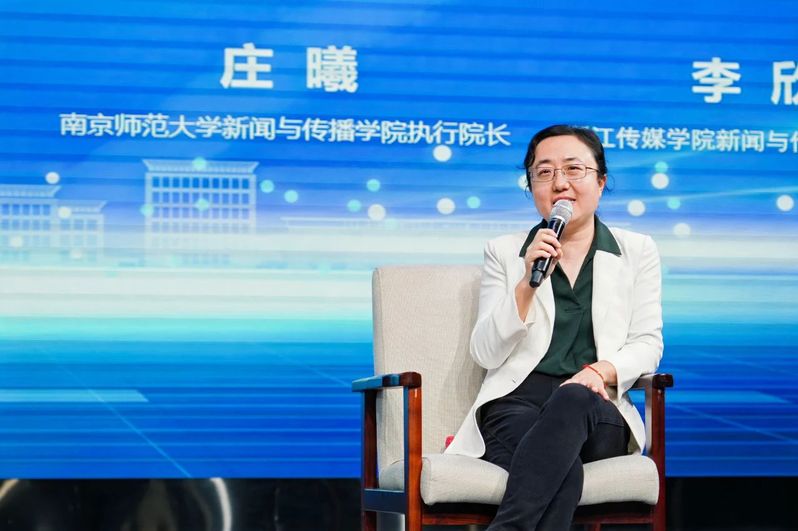
In response to the challenges of education and discipline remodeling, Li Xin shared how Zhejiang University of Media and Communications integrates artificial intelligence technology into traditional courses through micro-specialty construction. She highlighted the challenges posed by generative AI in news production, especially its impact on the collaborative relationship between humans and machines, and how to ensure that humans remain subjective in news production. Therefore, how to define the collaborative relationship between humans and machines and ensure the subjectivity of humans in news production has become a challenge for traditional application-oriented talent training schools. The curriculum needs to strengthen man-machine cooperation training to meet this challenge.
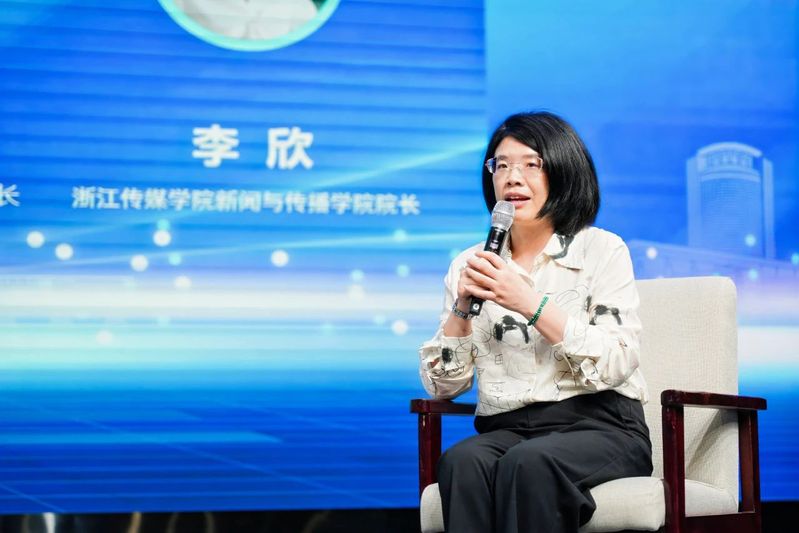
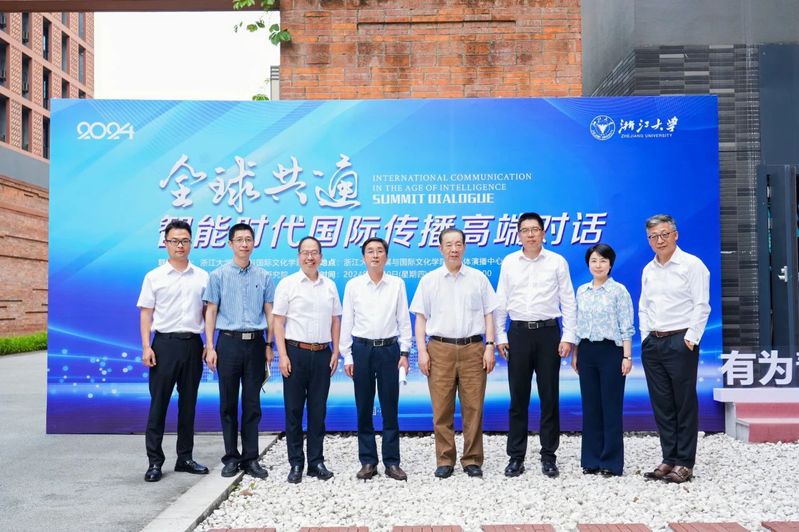
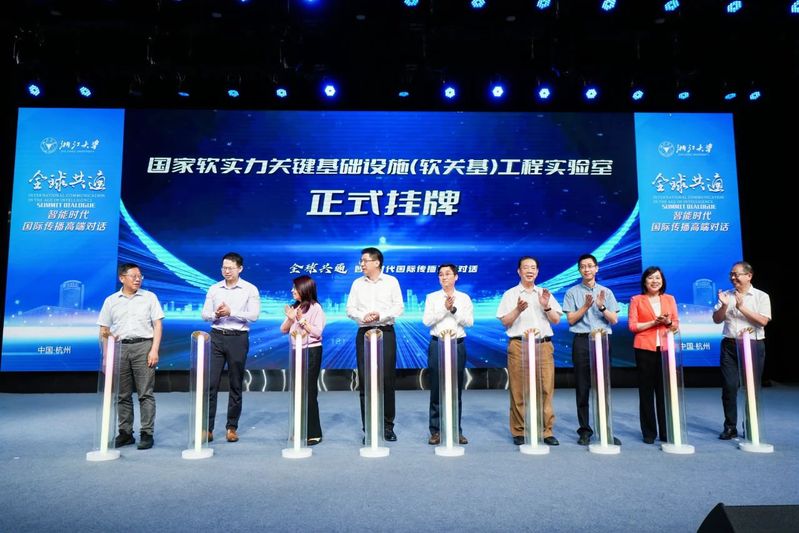
The dialogue gathered a large number of academic and industry experts to discuss the forefront of the international spread of the intelligent era, providing a valuable platform for academic research and practical operation. In the future, Zhejiang University will continue to uphold the spirit of openness and cooperation, promote the innovation and application of intelligent communication technology, deepen the research and practice in the field of international spread, and help build a closer and interconnected global information dissemination network. Through continuous exploration and efforts, Zhejiang University is committed to playing a leading role in the wave of international spread of the intelligent era, and creating a better future.

